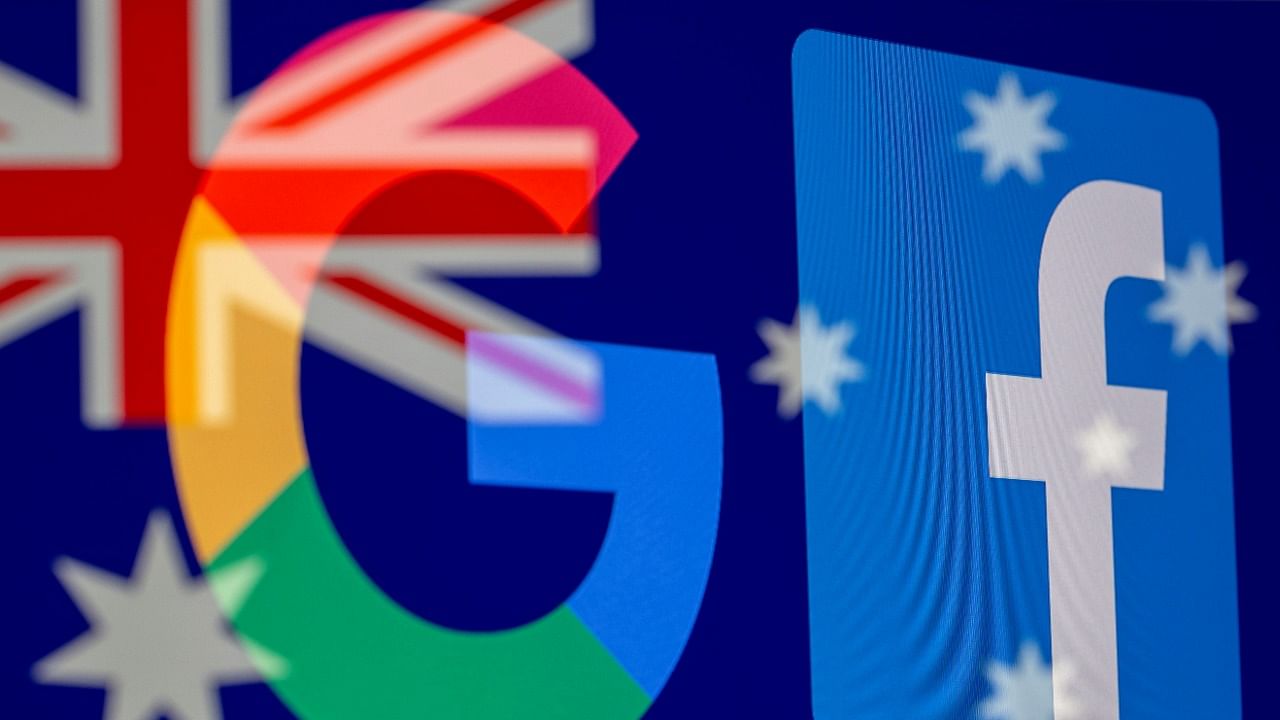
Australia passed the landmark legislation on February 25, 2021, requiring global digital giants including Facebook and Google to pay for local news content.
The country's Parliament passed amendments to the so-called News Media Bargaining Code agreed between Treasurer Josh Frydenberg and Facebook chief executive Mark Zuckerberg on Tuesday. In return for the changes, Facebook agreed to lift a ban on Australians accessing and sharing news.
Here is why Australia wants Facebook, Google to pay for news:
After nearly two decades of light-touch regulation, Google and Facebook are coming under increased government scrutiny. In Australia, regulators have zeroed in on the tech firms' online advertising dominance and its impact on struggling news media.
According to Australia's competition watchdog, for every $100 spent on online advertising, Google captures $53, Facebook takes $28 and the rest is shared among others. To level the playing field, Australia wants Google and Facebook to pay for using expensive-to-produce news content in their searches and feeds.
The Australian Competition and Consumer Commission chair believes that the amended legislation would address the market imbalance between Australian news publishers and the two gateways to the internet.
Digital giants vs Australian news publishers
The purpose of the code is to address the market power that clearly Google and Facebook have. Google and Facebook need media, but they don't need any particular media company, and that meant media companies couldn't do commercial deals.
The legislation would likely result in small payouts for most Australian news publishers but Facebook could again block Australian news if negotiations broke down.
What do the amendments mean?
The new law paves the way for Google and Facebook to invest tens of millions of dollars in local content deals and could prove a model for resolving the firms' tussles with regulators worldwide. The legislation was designed to curb the outsized bargaining power of Facebook and Google in their negotiations with Australian news providers.
The digital giants would not be able to abuse their positions by making take-it-or-leave-it payment offers to news businesses for their journalism. Instead, in the case of a standoff, an arbitration panel would make a binding decision on a winning offer.
The changes would give digital platforms one month's notice before they are formally designated under the code. That would give those involved more time to broker agreements before they are forced to enter binding arbitration arrangements.
Google will now pay for news content that appears on its "Showcase" product and Facebook is expected to pay providers who appear on its "News" product, which is to be rolled out in Australia later this year.
What's next?
Facebook and Google now have an additional two months to reach further agreements that would stave off binding arbitration.
Google has already brokered deals worth millions of dollars with local media companies, including the two largest: Rupert Murdoch's News Corp and Nine Entertainment.
Meanwhile, Facebook has lifted a site-wide ban on Australian news, introduced in protest at the law, and announced its first proposed deal with an Australian media company, Seven West.
Both Facebook and Google have each said they will invest around $1 billion each in news around the world over the next three years.
What do experts have to say about the amendments?
Critics of the law say it punishes innovative companies and amounts to a money-grab by struggling — but politically connected — traditional media.
Tech insiders see the legislation as driven, in particular, by Rupert Murdoch's News Corp, which dominates the local media landscape and has close ties with Australia's conservative government. Nick Clegg, head of global affairs told news agency Reuters that the original draft of the law would have forced Facebook to pay "potentially unlimited amounts of money to multinational media conglomerates under an arbitration system that deliberately misdescribes the relationship between publishers and Facebook".
Thousands of journalism jobs and scores of news outlets have been lost in Australia alone over the past decade as the sector watched advertising revenue flow to the digital players.
(With agency inputs)